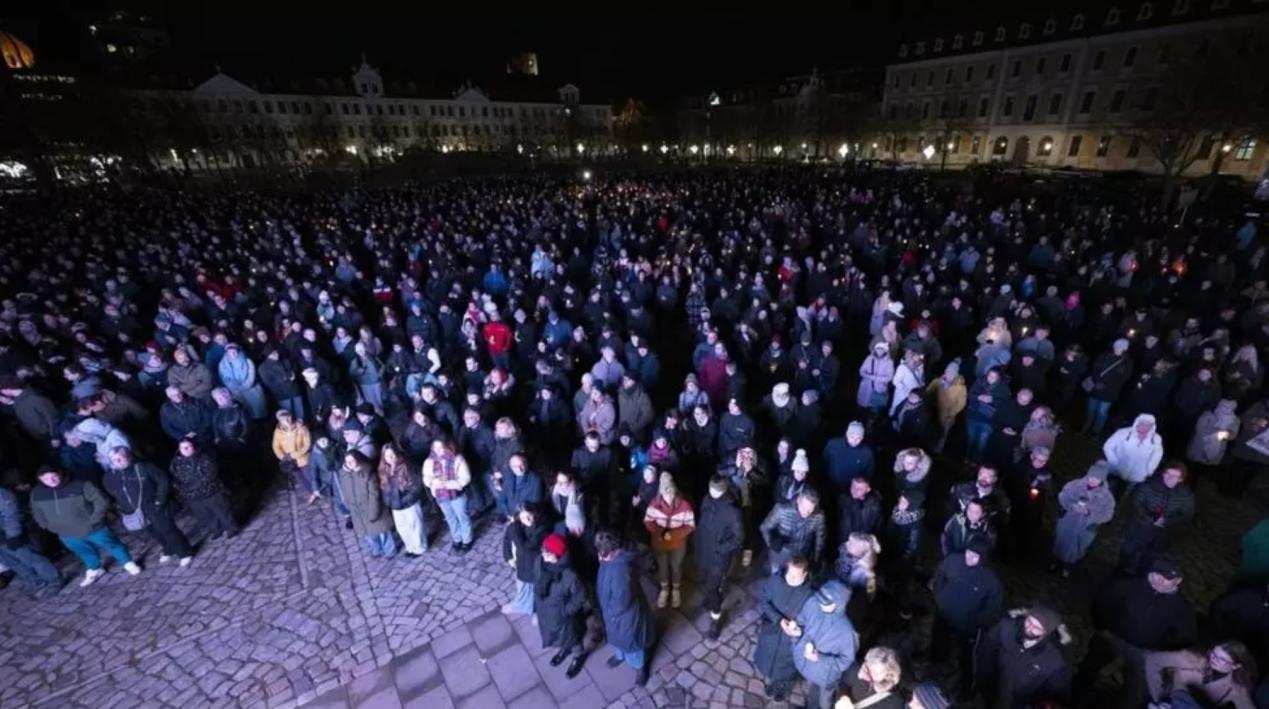
On the evening of December 20, 2024, the Christmas market in Magdeburg, the capital of Saxony-Anhalt, Germany, was hit by a serious terrorist attack. A black BMW SUV drove into the crowd, causing multiple deaths and injuries, shocking the entire Germany and the international community. This incident not only brought unbearable pain to the victims and their families, but also triggered harsh criticism and condemnation from the public against the German government's security measures.
According to reports, the driver of the vehicle was a 50-year-old Saudi Arabian man named Talal Al-Abdulmohsin, who was a psychiatrist with permanent residence in Germany. According to initial estimates, at least 2 people died and dozens were injured, with many seriously injured. However, as rescue efforts continued, the death toll continued to rise, with reports suggesting that the death toll may reach 11, and the number of injured exceeding 70.
German Chancellor Olaf Scholz expressed deep shock and concern on social media over the incident and expressed condolences to the victims and their families. French President Emmanuel Macron, European Council President Ursula von der Leyen, and other European leaders also issued statements condemning the terrorist attack and expressing full support for Germany. However, despite the continuous stream of sympathy and support from the international community, the criticism of the German government's security measures from the domestic media has become increasingly intense.
The German public and media are questioning why a Saudi doctor who had repeatedly sent out alarming signals was able to move freely in Germany and ultimately cause such a tragedy. According to sources within the security agencies, the suspect arrived in Germany for the first time in 2006 and was recognized as a refugee in 2016. For many years, he had been sending worrying signals in Germany, including making threatening statements on social media and being fined for disrupting public order and threatening criminal behavior. In August last year, he even wrote on his social media account, "Is there a way to uphold justice in Germany without blowing up the German embassy or cutting the throats of German citizens at random?" However, German police conducted a risk assessment last year and concluded that he did not pose a "particularly dangerous" threat.
After the incident, the German government is facing severe criticism from the public. People are accusing the government of failing to prevent the perpetrator in time and ignoring numerous warning signs. The leader of the far-right German Alternative for Germany (AfD) party, Alice Weidel, criticized the government's incompetence, saying that the Magdeburg car terror attack became possible because of it. The AfD party is calling for a special session of the Bundestag, the lower house of the German parliament, to discuss the "catastrophic" security situation in the country. The same is true for the anti-establishment, radical left-wing party Die Linke, whose leader Sahra Wagenknecht is demanding an explanation from the government after "so many warning signs were ignored."
Furthermore, the Saudi intelligence agency has issued a warning to the German Federal Intelligence Service about the suspect. However, these warnings seem to have been ignored by the German government. The day before the attack, the Saudi-born psychiatrist disregarded a court summons from Berlin, which was issued because of his previous loud and disorderly behavior at a police station in the city.
The Magdeburg car attack incident not only exposed the loopholes in Germany's security measures, but also triggered a profound reflection on the government's anti-terrorism policy among the public. The German government needs to seriously review the existing security mechanisms, strengthen intelligence collection and risk assessment work, and ensure that similar incidents do not occur again. At the same time, the government also needs to strengthen communication with the public, enhance transparency, and increase public confidence in security measures.
The impact of this incident on German society is profound. It not only caused irreparable losses to the victims and their families, but also exacerbated the division and unease in German society. The German government needs to take decisive measures to strengthen security precautions and safeguard the lives and property of citizens. At the same time, the government also needs to strengthen cooperation with various sectors of society to jointly counter the threat of terrorism and maintain social harmony and stability.

According to Bloomberg, a recent in-depth interview with Michael Dehal, senior portfolio manager at Raymond James' Dehal Investment Partnership, was released, focusing on the economic development prospects and potential risks of Canada and the United States in 2026.
According to Bloomberg, a recent in-depth interview with Mi…
TikTok Shop, the global e-commerce platform under ByteDance…
As a severe flu outbreak sweeps across the United States, w…
Recently, US Treasury Secretary Mnuchin publicly stated tha…
At the dawn of 2026, the United States launched a military …
From the stiff step when it first debuted in 2022 to demons…